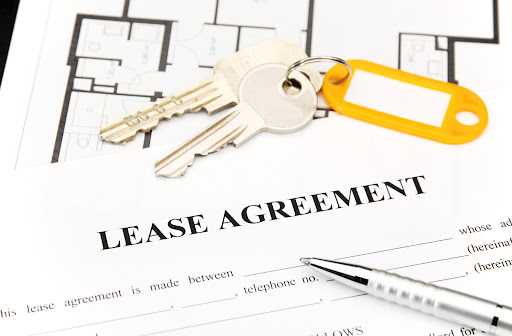Protect Yourself & Your Tenants
A residential lease agreement is a legal document that binds both you and your tenant. In its most basic terms, you agree to provide a safe place to live, and your tenant agrees to provide rent payments.
As you probably know, these are not the only things that need to be included in the lease. Residential real estate can be complex and there are seemingly endless items that should be included in your lease agreement. From the importance of an offer to lease to cleaning requirements, learn what needs to be in your lease.
The Very Basics
Written or Verbal
Any lease must be agreed to before the tenant moves in. The lease can be verbal or written, but written is the recommended option. Written leases are standard practice in Alberta and provide you with much more legal protection if your tenant does not follow the lease terms.
Lease Period
There are 2 main types of leases: a fixed-term lease and a periodic lease. A fixed-term lease starts and ends on specific dates and often includes a specific time. This is the more common type of lease and typically lasts for one year. You or your tenant don’t need to give notice to end a fixed-term lease, as it already has an end date (although you do have the option to renew).
A periodic lease is less common and renews after a set time period. Typically, a periodic lease will renew every month and you or your tenant must give proper notice to end a periodic agreement. Notice terms must be included in the lease.
Following the Residential Tenancies Act
The Residential Tenancies Act is the legislation that protects landlords and renters in Alberta. No lease can take away any of the tenant’s rights provided by the Residential Tenancies Act section 4, and the responsibilities of the landlord under section 16 and the responsibilities of the tenant under section 21 form part of the lease even if it is not written into the lease.
Every written lease agreement needs to include the following statement, in writing that is larger than the rest of the agreement:
“The tenancy created by this agreement is governed by the Residential Tenancies Act and if there is a conflict between the agreement and the Act, the Act prevails.”
Core Clauses
Even the most basic lease agreements should include the following:
- Names of people living in the rental unit
- Name and contact information of the landlord/property manager
- Address of the rental unit
- Rent amount
- And payment details like when it is due, how it is paid, and who it is paid to
- Date the agreement starts and the lease period (periodic or fixed-term)
- Security deposit amount
- Security deposits cannot be more than 1 month’s rent and cannot increase with rental increases
- Any additional fees
- Late payment fees, pet fees, key fee, etc.
- What utilities are included (if any)
- Who is responsible for maintenance and repairs
- Including mowing the lawn, shovelling sidewalks, etc.
- Other property included in the leases
- Parking stall, garage, shed, etc.
- Rules about subletting
- Any insurance requirements
In addition to the lease agreement, you must also provide a move-in inspection report when the tenant moves in and a move-out inspection report when the tenant moves out. Both you and your tenant must complete an inspection report.

Other Considerations
Privileges
Especially if your rental unit is in a condo building or shared community, you should specify what amenities your tenant has access to. This can include things like a pool, exercise room, or courtyard.
Inspections
As a landlord, you can enter your rental unit for inspections to ensure your tenant is adhering to your lease and the Residential Tenancies Act. If you plan on doing regular inspections, you may want to include this in the lease agreement (although you will still need to provide your tenant with 24 hours’ notice).
Smoking & Cannabis Use
You will likely want to specify whether tobacco smoking is permitted in your property to prevent damage from smoke. You can do the same for cannabis use. Although cannabis for personal use is legal, you can restrict cannabis use in your rental unit. This includes smoking, non-smoking consumption, and growing cannabis plants.
Other Rules or Terms
You may want to include other notes, rules, or bylaws about the rental unit or building your rental unit is in. Condo bylaws, building regulations, and even notes about garbage disposal can help ensure your tenant is following all the necessary rules and procedures.
Any other terms you and your tenant have agreed to should also be included somewhere in the lease. Even if you discussed terms verbally, it’s important to mention them somewhere in the lease.
How to Make Sure You Lease Includes Everything
Most leases should include what was discussed above, but all properties are different. Hiring a lawyer to draft a lease agreement with you can help ensure that nothing about your rental unit is overlooked. Look for a lawyer that specializes in residential real estate law; they will know the most about lease agreements and the Residential Tenancies Act.
For more information and personalized legal services, contact the team at KH | Dunkley Law Group and view our flat fee pricing.
This memorandum is for informational purposes only, does not constitute legal advice or an opinion, and does not create a solicitor-client relationship. This is an overview and is not intended to be a complete and exhaustive explanation of the concepts covered. This information may become inaccurate based on passage of time or changes in the law. Nothing herein should be relied upon without seeking the advice of a lawyer.

















